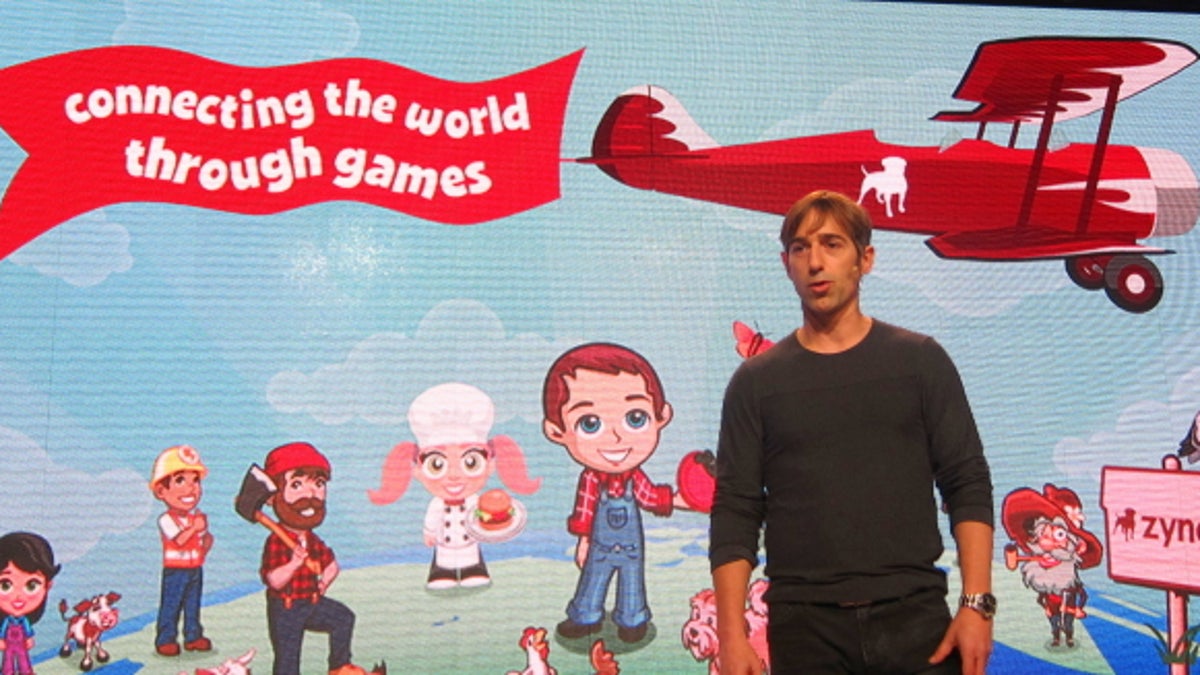So Zynga, ready to go public?
The social-gaming company is trying to maneuver its way through a disconcerting IPO market, but also needs to overcome complaints over its stock "meritocracy."

Doesn't Zynga have enough headaches getting ready for its initial public offering?
The social-gaming company yesterday suffered a distraction from its IPO plans after The Wall Street Journal reported that Zynga CEO Mark Pincus last year demanded unvested stock back from some employees who, he believed, didn't deserve to hold so many shares in the company. If the employees didn't hand over the shares, the Journal reported, they would face termination.
That report cropped up at the worst possible time for Zynga. The social-gaming company is planning to offer its shares after Thanksgiving. Given the state of the IPO market right now, worrying about consumer reaction to an employee policy isn't exactly desirable.
Following the IPO successes of LinkedIn and Russian search engine Yandex earlier this year, Wall Street was abuzz with the possibility of dozens of hot Web start-ups going public. But after economies worldwide started to tank, it quickly became clear that the road to an IPO wouldn't be so easy in the second half of 2011.
The situation has become even worse as of late. The stock market has been swinging wildly, posting huge losses one day and nice gains the next. And with Italy and Greece in financial turmoil and the prospect of banks around the world failing because of it, many shareholders are thinking twice about putting their cash in any company.
Groupon proved that point earlier this month. After initially planning to go public in September, it found an increasingly hostile IPO market that made it push its offering further back. Finally, earlier this month, the daily-deals provider offered its stock for $20 a share, putting its valuation at $12.5 billion--much less than the $20 billion to $25 billion it had hoped for when it first announced plans to go public earlier this year.
Zynga has been in this position before. In July, the social-gaming company announced plans to raise $1 billion in funding, but as each month passed, it continued to push its IPO back due to concerns over the chaotic market.
But Zynga has apparently waited long enough. And from choosing the right date to go public to trying to set an opening price that attracts shareholders but doesn't undervalue the company, Zynga's top executives have their work cut out for them. The last thing they need is a distraction.
Although Zynga didn't respond to the Journal's or CNET's requests for comment on the stock-retrieval issue, Fortune last night posted a transcript of an e-mail Pincus allegedly sent to Zynga employees yesterday. In the alleged e-mail, Pincus claims the Journal's story was inaccurate:
"The Wall Street Journal posted a story last night (copied below) which paints our meritocracy in a false and skewed light. The story is based on hearsay and innuendo which is disappointing but is to be expected as we move towards becoming a public company.
"We have nothing to hide in our past and present policies and I am proud of the ethical and fair way that we've built this company. As many of you have heard me say--we're building a house that we want to live in."
Pincus reportedly went on to say in the e-mail that the "meritocracy" provides each of its employees with the "same opportunity to lead."
If Pincus did indeed write that e-mail, it is worth noting he didn't specifically deny the Journal's claims regarding the return of unvested stock.
Overall, the alleged e-mail is a thinly veiled attempt at quelling some of the unrest over the report--and to make the company look a bit better as it prepares for its IPO.
Looking beyond an IPO
However, as important as the IPO is to Zynga and its shareholders, the company must also continue to maximize shareholder value after its stock becomes available. In order to do that, it appears Zynga will continue to capitalize on the success of its core titles, like CityVille and FarmVille, but also start to break away from the chief contributor to its success: Facebook.
Last month at a press conference in San Francisco, Pincus said that his company is planning to build a gaming platform that could eventually compete with Facebook.
"We are building a platform for play," he said. "We're not trying to be the company that makes the next hit game...but it's OK if we do. We're trying to do something broader than that."
Pincus didn't provide any more details on the platform but did say that he's trying to build something like Facebook's platform, "but at the game level."
Eventually reducing its reliance upon Facebook could be integral to Zynga's future success. Zynga currently gives 30 percent of all the revenue it generates from its games running on Facebook to the social network. What's more, the company revealed in its SEC filing earlier this year that 82 percent of its revenue comes from Facebook. In other words, Facebook controls Zynga's destiny, and the game company has no leverage with the social network.
"If we are unable to maintain a good relationship with Facebook, our business will suffer," Zynga wrote in an SEC filing earlier this year.

